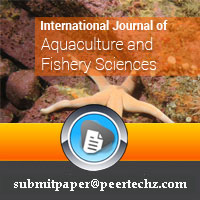International Journal of Aquaculture and Fishery Sciences
Science Knows the Answers for Fishing but Politicians Are Acting the Wrong Way
João P Barreiros*
Cite this as
Barreiros JP (2016) Science Knows the Answers for Fishing but Politicians Are Acting the Wrong Way. Int J Aquac Fish Sci 2(1): 038-038. DOI: 10.17352/2455-8400.000018Editorial
Marine Protected Areas (MPA’s) in the World are small and, more often than not, badly managed. In fact, the total area of MPA’s is not bigger than that of South Africa. However, if we remove MPA’s where some kind of traditional fishing is allowed that total is about the size of Holland – which means next to zero [1].
Fishing policies in many countries around the World, and this includes many of the so-called 1st world countries are ‘limited’ by short to mid-term decisions in face of short electoral calendars [2]. This means that decisions on bans, moratoria and MPA’s are simply dominated by political calendars and not by sound long-term scientific studies many of which have proven to be sound and wise for a sustainable use of marine (and also other aquatic) resources.
The issue of fisheries economics may well be a primer tool, and in fact has already proved to be of important use. Economics, however, will never be independent from politics and financial matters of short term urgency do transform mid- to long-term policies into immediate actions and legislation that cause damage, if not drawbacks, to fisheries and fishing policies. One reason behind this problem may well be due to the fact that, despite a majority of nations being signatories of the Biodiversity Convention, the application and enforcement of sanctions for non-accomplishments are just not effective.
Selective fishing is not applied as a norm while many real selective of fishing (e.g. spear fishing) are actually being labeled as ‘politically incorrect’ just because (!). Trawling for shrimp between the Gulf of Mexico and S Brazil implies huge quantities of bycatch that is normally discarded [3].
Bans of a given species for non-selective fishing methods are just not effective and will inevitably contribute for an increase not only in illegal catches but also in unknown takes of biomass and tax evasion. Protected species just “do not know that they are protected” and will keep on biting the hook and or get trapped in nets [4]. On the other hand, a fully protected species may have their populations grow to a point in which they will cause serious trouble to a whole community. Perhaps one of the more elucidative cases in this aspect is the situation of Goliath Grouper populations’ growth in Florida with a strong impact on a vast number of fish and invertebrate species [5].
- Horta e Costa B, Erzini K, Caselle JE, Folhas H, Gonçalves EJ (2014) Reserve effect’ within a temperate marine protected área in the north-eastern Atlantic (Arrábida Marine Park, Portugal). Mar Ecol Prog Ser 481: 11–24.
- Pauly D (2009) Beyond duplicity and ignorance in global fisheries. Scient Mar 73: 215–224.
- Pusceddu A, Gambi C, Corinaldesi C, Scopa M, Danovaro R (2014) Relationships between meiofauna Biodiversity and prokaryotic heterotrophic production in different topical habitats and oceanic regions. PLoS ONE 9: e91056.
- Barreiros JP (2015) Overall impact of local and recreational fisheries: Approaching the case in the NE Atlantic and Mediterranean. 327-347. In: Progressive Engineering Practices in Marine Resource Management (Ivelina Zlateva, Violin Raykov, Nikola Nikolov, eds.), Chapter 10.
- Koenig CC, Coleman FC, Kingon KC (2011) Pattern of recovery of the goliath grouper Epinephelus itajara (Lichtenstein, 1822) population in the southeastern US. Bull Mar Sci 87: 891-911

Article Alerts
Subscribe to our articles alerts and stay tuned.
 This work is licensed under a Creative Commons Attribution 4.0 International License.
This work is licensed under a Creative Commons Attribution 4.0 International License.
 Save to Mendeley
Save to Mendeley
